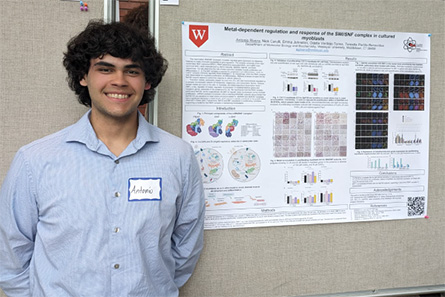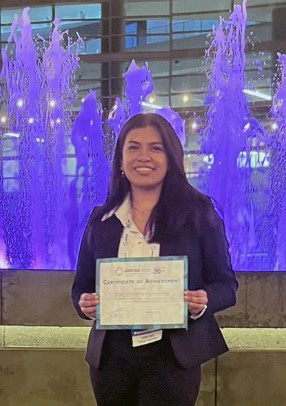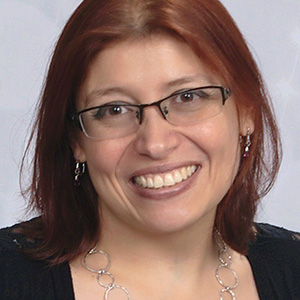How undergrad research catalyzes scientific careers
When Antonio Rivera stepped into a lab for the first time as an undergraduate, he had no idea what he was walking into — or how much it would change his life.

“I was completely unaware of the world of conducting research, writing manuscripts, reviewing papers and obtaining degrees,” he said. That moment marked a turning point — or as he put it, “a point of concavity” — in his academic path.
Rivera, a recipient of the 2023 Marion B. Sewer Scholarship for Distinguished Undergraduates and the 2025 Barry Goldwater Scholarship, was not alone in discovering how research could reshape a career. Many undergraduates find that participating in scholarly work does more than reinforce classroom lessons — it transforms their sense of identity as scientists. It introduces them to failure and persistence, sharpens their problem-solving skills and opens doors to future opportunities in research, medicine and beyond.
Julissa Cruz Bautista, a McNair Scholar, said Wesleyan University’s emphasis on undergraduate research provided the ideal setting to deepen her scientific understanding and gain hands-on experience.

She explained that conducting real-world experiments helped her connect classroom learning to practical applications: “I was able to apply theoretical concepts from the classroom to real-world experiments.”
As she worked through the challenges of research, Cruz–Bautista began to view setbacks as learning opportunities rather than obstacles. The process, she said, allowed her to explore questions in greater depth and refine her problem-solving skills.
“Each failure or setback offered an opportunity to learn and refine my approach,” she said.
Equally impactful was the mentorship she received from faculty members. Their guidance was instrumental in helping her develop a research proposal and navigate the complexities of academic funding.
“The mentorship I received during this time — especially from faculty who supported me in developing my research proposal — was invaluable,” she said. “It helped me understand the intricacies of academic funding and how to align my research interests with available resources.”
For Rivera, undergraduate research became a gateway into the scientific world — a world that felt out of reach as a first-generation college student.
“A large barrier for students joining academia, particularly first-generation college students, is their obliviousness to how higher education functions,” he said. “Coursework, despite its conceptual importance, does not adequately prepare students to be scientists.
Many classes don’t include labs or technical training. They don’t build the mental aptitude or address the essence of scholarship.”
He emphasized that research is what teaches students the intangible skills that coursework can’t: critical thought, intellectual curiosity and real-world problem-solving.
“By joining a research lab, students gain skills necessary for what they want to do — and develop the mindset to understand what academia entails and how to be a scientist.”
Enjoy reading ASBMB Today?
Become a member to receive the print edition four times a year and the digital edition monthly.
Learn moreGet the latest from ASBMB Today
Enter your email address, and we’ll send you a weekly email with recent articles, interviews and more.
Latest in People
People highlights or most popular articles

Kiessling wins glycobiology award
She was honored by the Society for Glycobiology for her work on protein–glycan interactions.

2026 ASBMB election results
Meet the new Council members and Nominating Committee member.

Simcox wins SACNAS mentorship award
She was recognized for her sustained excellence in mentorship and was honored at SACNAS’ 2025 National Conference.

From humble beginnings to unlocking lysosomal secrets
Monther Abu–Remaileh will receive the ASBMB’s 2026 Walter A. Shaw Young Investigator Award in Lipid Research at the ASBMB Annual Meeting, March 7-10 in Washington, D.C.

Chemistry meets biology to thwart parasites
Margaret Phillips will receive the Alice and C. C. Wang Award in Molecular Parasitology at the ASBMB Annual Meeting, March 7-10 in Washington, D.C.

ASBMB announces 2026 JBC/Tabor awardees
The seven awardees are first authors of outstanding papers published in 2025 in the Journal of Biological Chemistry.



